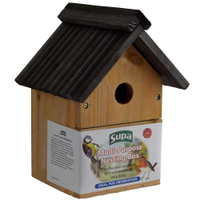How to attract birds that eat slugs for natural pest control, according to wildlife experts
Why not utilise the wonders of nature to help with your persistent pest control problems?
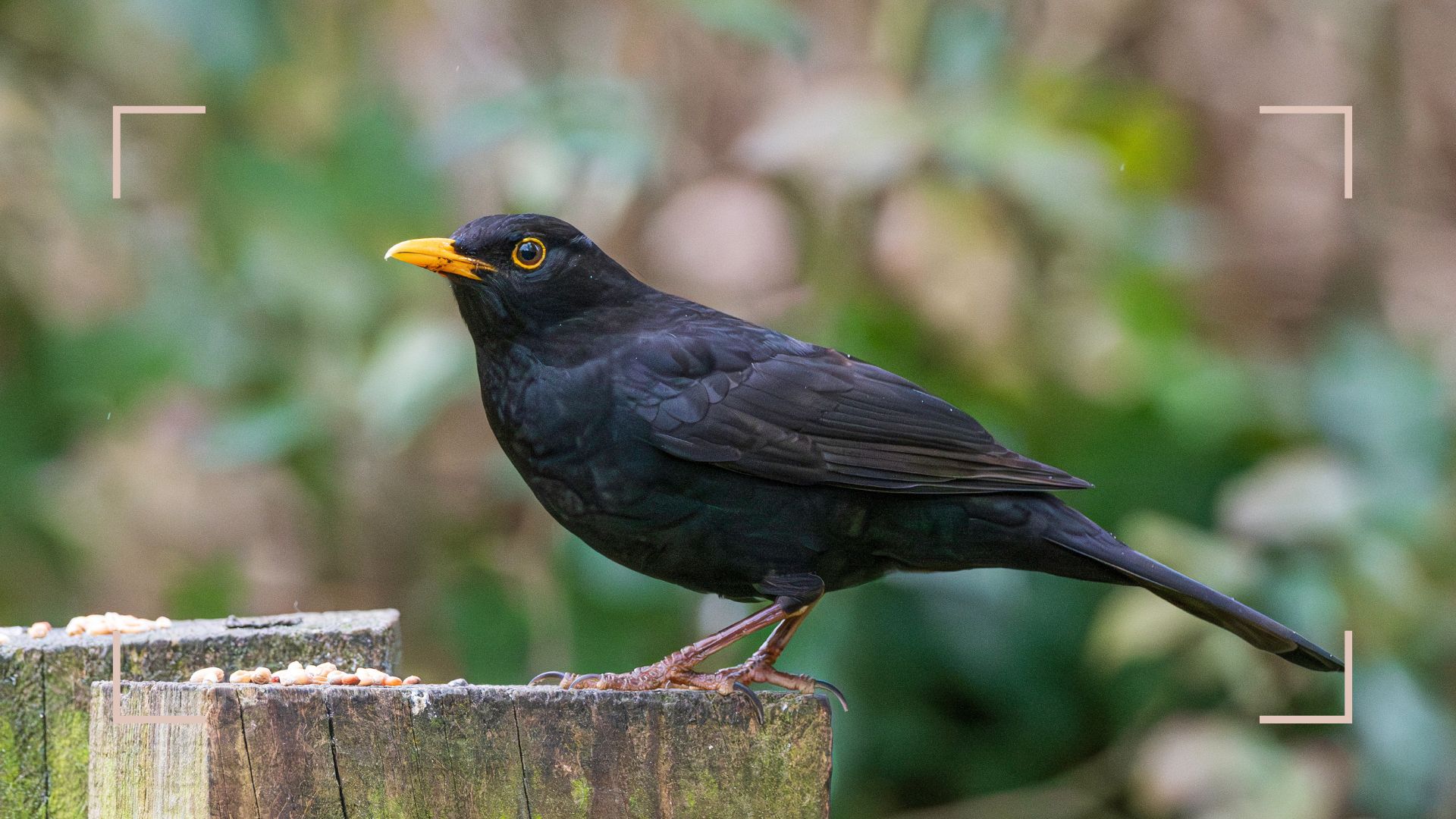

Pest control can feel like an impossible challenge at times, especially when it comes to slugs. So what better way to make it all that easier than calling on the power of nature to do the job for you?
Knowing how to attract birds into your garden brings multiple benefits, from supporting your local ecosystem to simply enjoying uplifting birdsong. But did you know that birds are also a great help in getting rid of slugs naturally?
So if you're fed up with watching your leafy greens become victims to these persistent pests, it might be time to summon winged reinforcements to help – here's how to do it.
How to attract birds that eat slugs to save your plants
Attracting more birds into your outdoor space welcomes plenty of positives to your garden. Most importantly, they can help rid your garden of annoying pests and keep veggies safe from being eaten.
Whilst all birds are great additions to your garden there are a few in particular that will be helpful with the removal of slugs.
Sean McMenemy, wildlife expert at Ark Wildlife explains: "It is common knowledge that chickens and ducks enjoy snacking on slugs and snails, but many people do not know that garden birds also enjoy a feast on the pesky creatures. Blackbirds, dunnocks and robins can be seen bobbing on the ground in search of food and will happily munch on any small slugs they come across."
Here are the best ways of attracting birds that eat slugs into your garden to encourage them to snack on unwanted guests.
Sign up to our free daily email for the latest royal and entertainment news, interesting opinion, expert advice on styling and beauty trends, and no-nonsense guides to the health and wellness questions you want answered.
1. Provide water sources
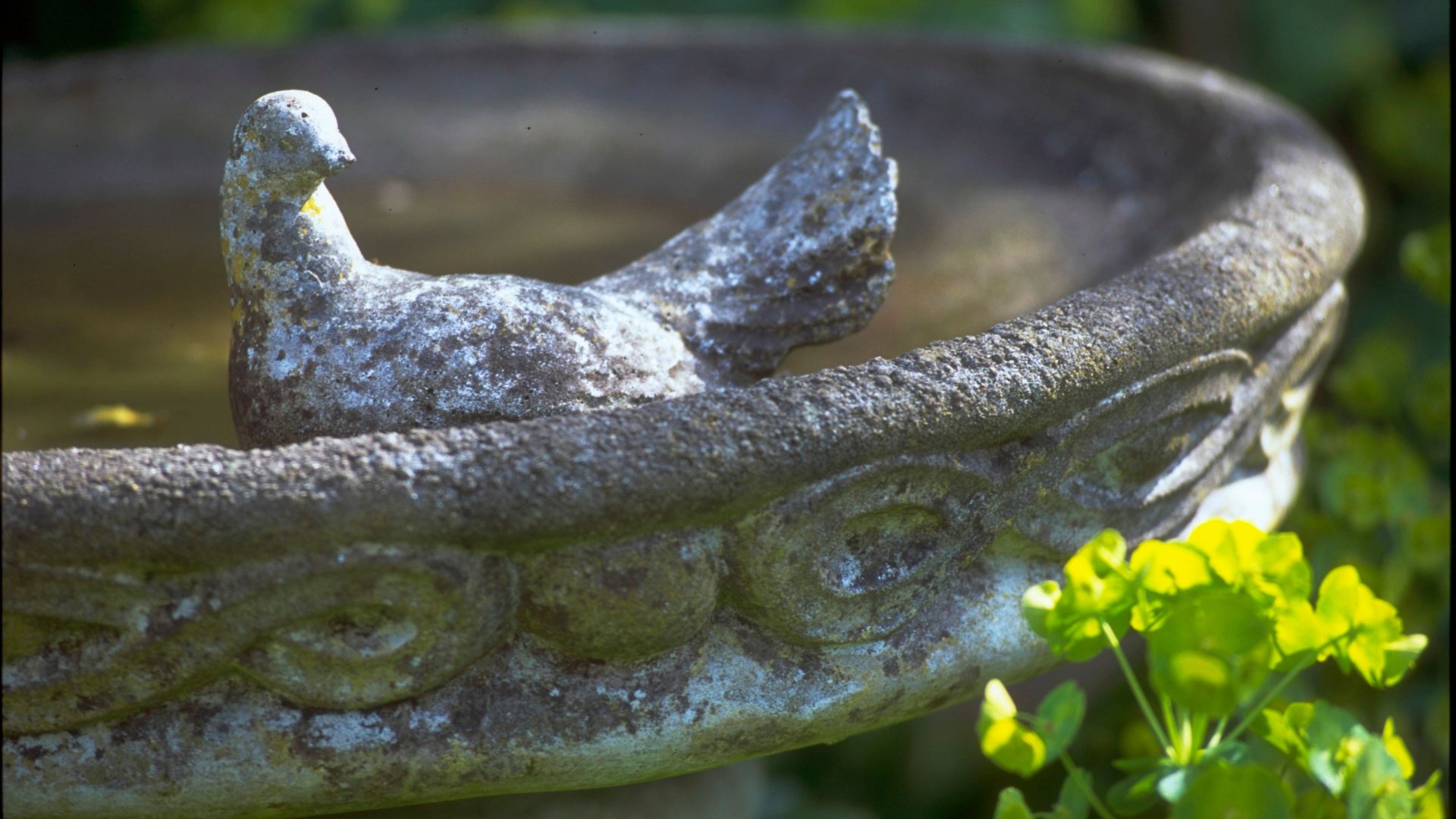
No matter what garden theme you choose to have, adding a bird bath into your space is a great way of attracting wildlife and offering them a reason to stay.
"Adding a source of water is also a fantastic way to entice birds," says Sean. "Birds require water to keep them hydrated, clean and cool. When the weather is warmer, finding a spot to bathe can be a challenge so a mini pond, a bird bath or even a shallow bowl of water in a shaded spot will be greatly appreciated, and in return your plants remain pest-free.”
Why not try out a small garden pond idea and see what other water-bound wildlife you can introduce to your garden's ecosystem?

Passionate wildlife enthusiast Sean McMenemy is the founder of the leading wildlife solutions company, Ark Wildlife. A lifelong lover of nature, Sean’s earliest childhood memories are of him outdoors and amongst nature and this is where his passion for garden wildlife bloomed. This interest blossomed into a hobby and then became a business when he launched his garden landscape company that specialised in wildlife-friendly designs in 1991. This later evolved into the bird and garden wildlife food and habitat provider it is today.
2. Offer different food options
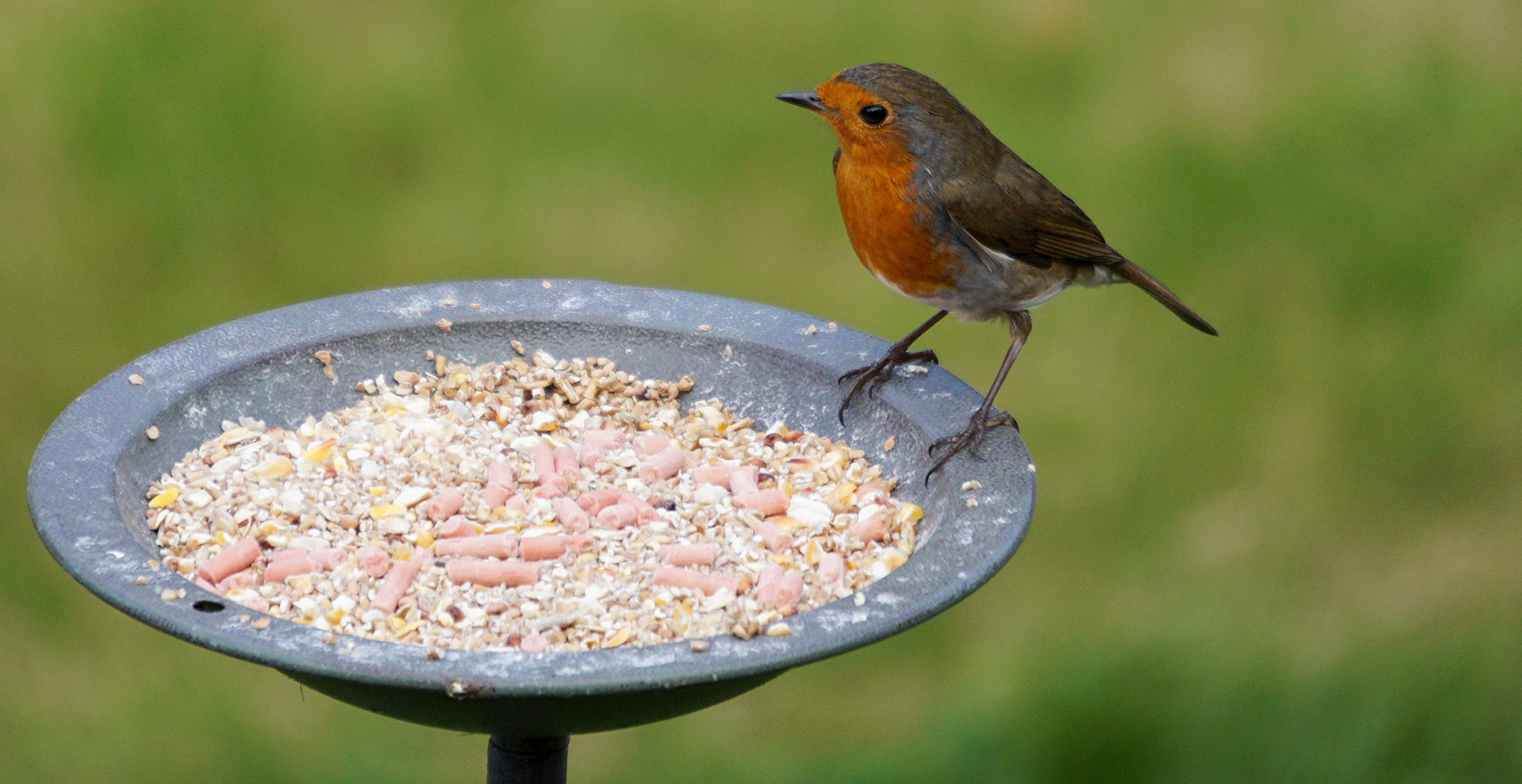
Although you want the birds to see any snails and slugs in your garden as food, supplying them with a clear source of nutrition will help attract them in the first place. Just be aware that if you're trying to get rid of pigeons the added food will probably be counterproductive.
James Ewens, commercial director of Green Feathers, explains, "On the topic of food if you want to attract some slug-eating birds, you’ll want to get a bird feeder set up. Suet balls and pellets are a great snack for many of these birds, so these are a good choice when it comes to deciding what to fill your feeder with."
"When it comes to where to install your feeder, place it in an area of your garden that is not only easily accessible for the birds but also around where you’d like them to spend the majority of their time.
You’ll want to make sure that it’s elevated far enough from the ground, so that potential predators can’t get to any birds that are using it, along with making it more difficult for squirrels to steal its contents," he adds. Important if you want to keep squirrels out of your garden.
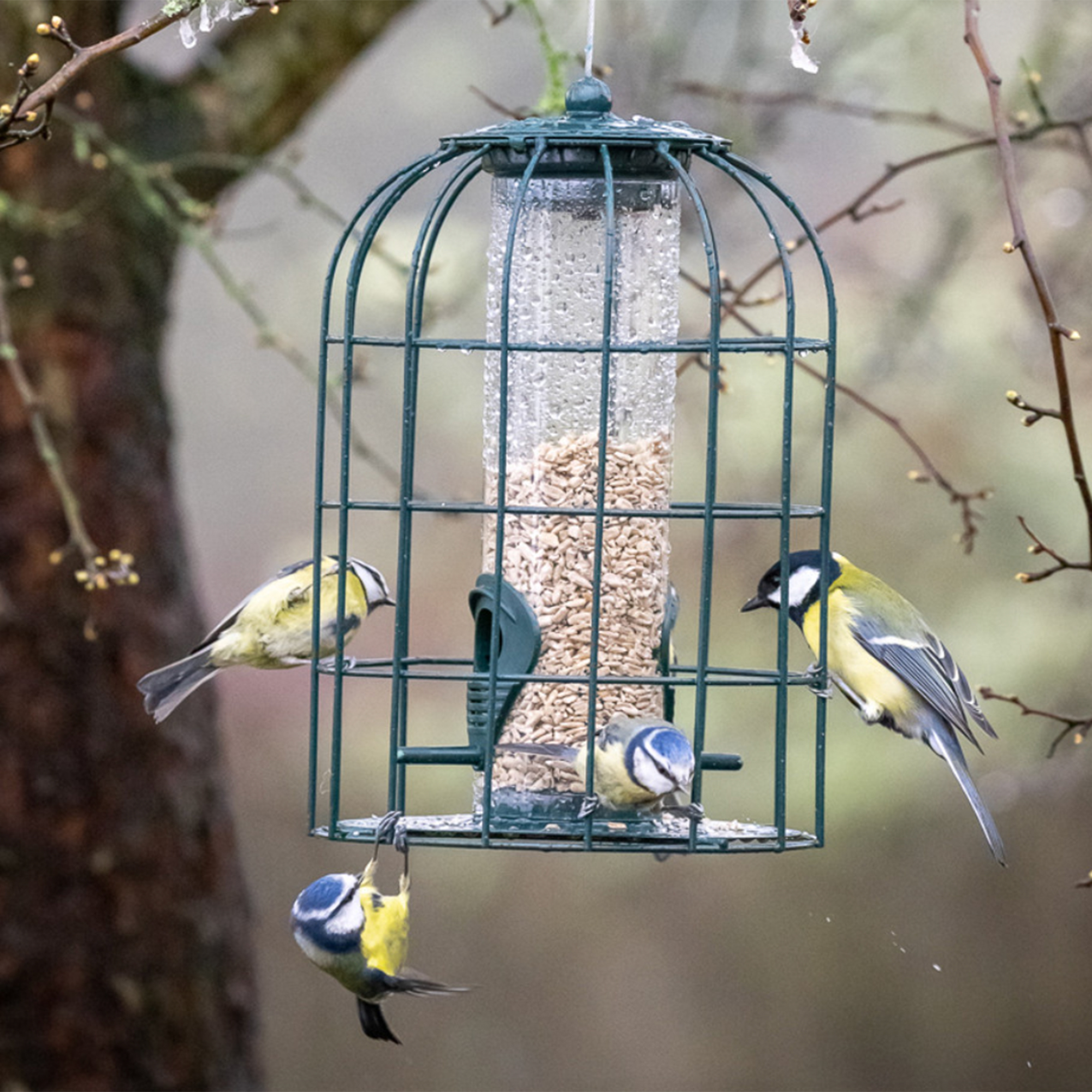
RRP: £24.95 | Entice birds into your garden by providing a safe space to perch and eat, a place free from squirrels eating their food.
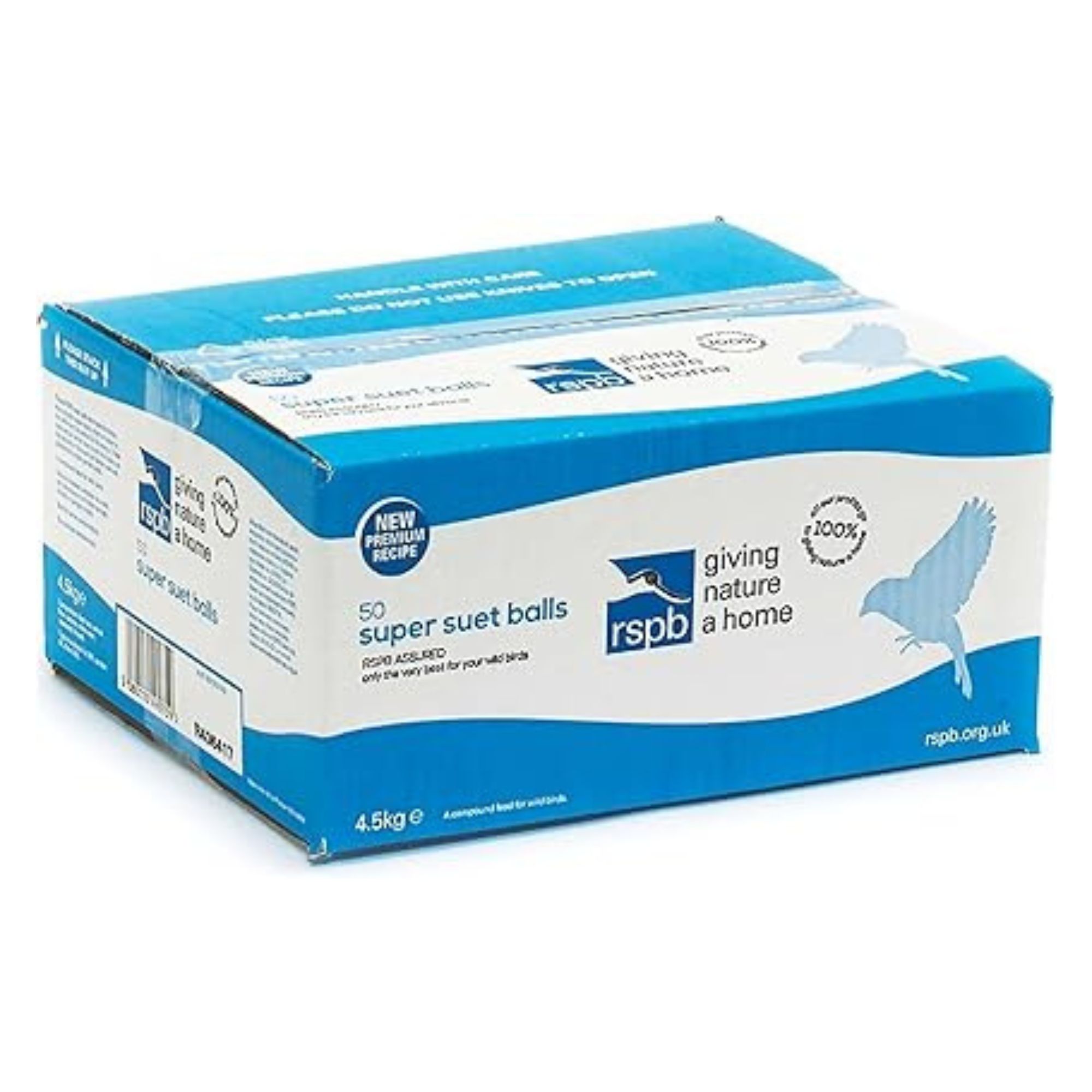
RRP: £15 | This pack of 50 fat balls provides brilliant energy-rich treats for all birds with a nutritious blend of suet, wheat flour, peanut flour, millet seed, rapeseed and linseed. Plus they're from the RSPB, a charity dedicated to bird conservation.
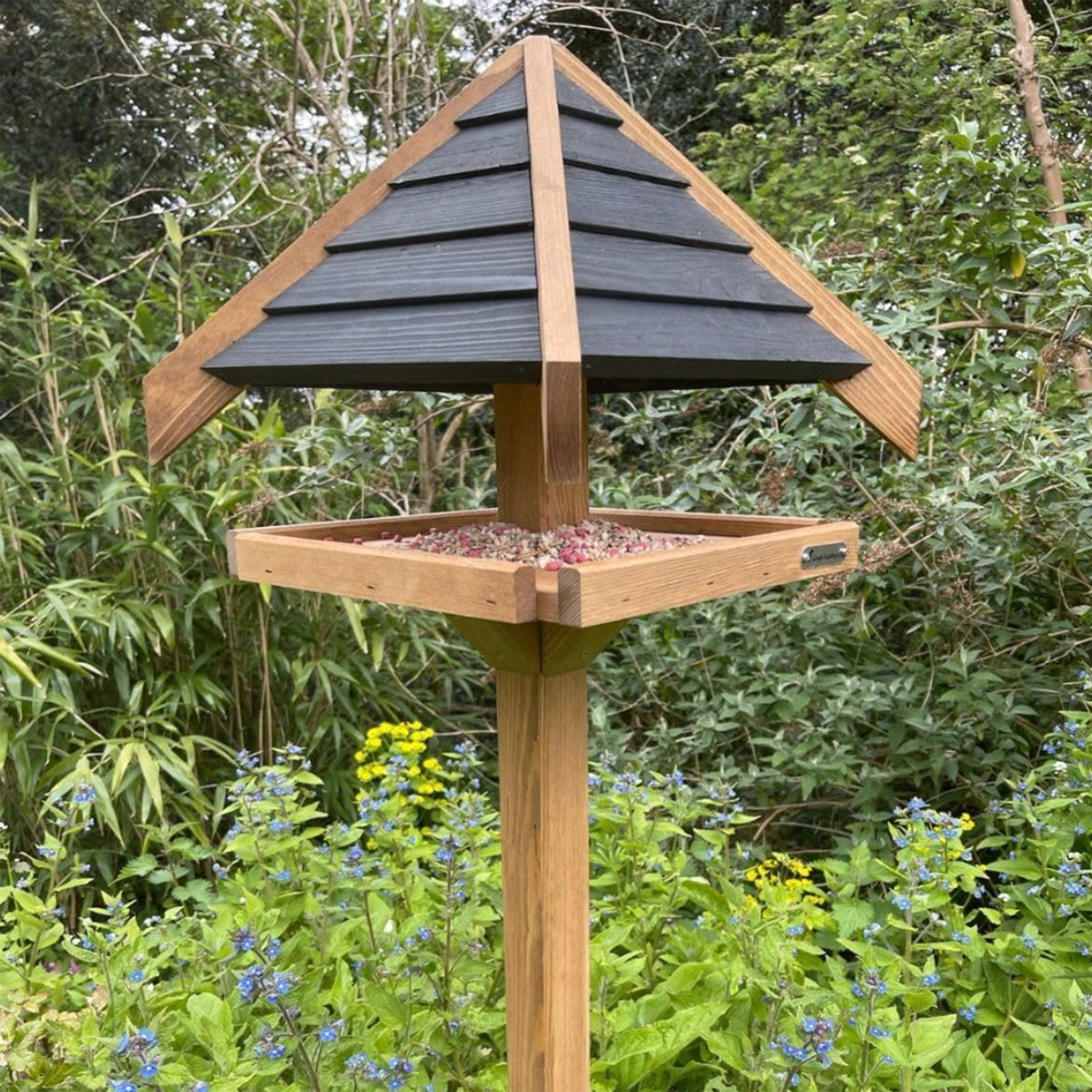
RRP: £61 |Offer shelter while they feed with this beautifully crafted bird table with a sloped roof. The mounting stake makes it ideal for vegetable beds.

James Ewens is the commercial director of Green Feathers, bird box camera and garden wildlife specialists, and is a self-proclaimed garden enthusiast. James is passionate about all things nature, garden, and wildlife, and when he’s not tending to his own outdoor space he’s usually checking on his bird and hedgehog cameras.
3. Use the tempting citrus trick
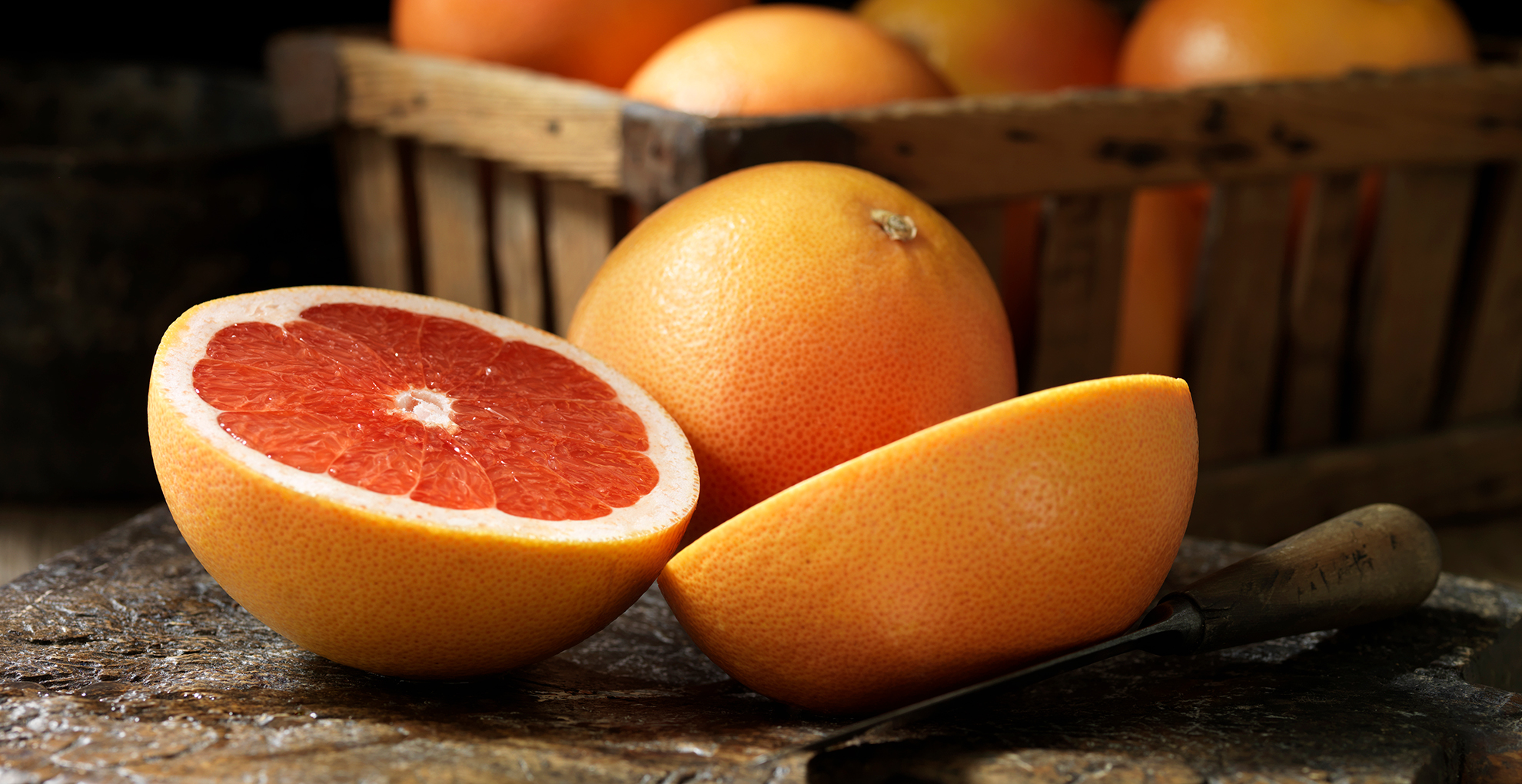
Whilst you may have been using orange peels in your gardens for some time now, the whole fruit can also be helpful for pest control.
"A fantastic natural alternative is to use citrus-fruit traps in your garden. Simply cut an orange or grapefruit in half and place the halves throughout your garden," suggests Maria.
"Birds will initially feed on the fruit, and slugs will be attracted to the rinds once the fruit is gone. The birds will then return to eat the slugs, effectively keeping your garden pest-free," she explains.
After picking the rinds, why not add the leftover fruit to your DIY compost heap? It'll add some great nutrients that your future plants will be grateful for.
4. Provide birds with shelter
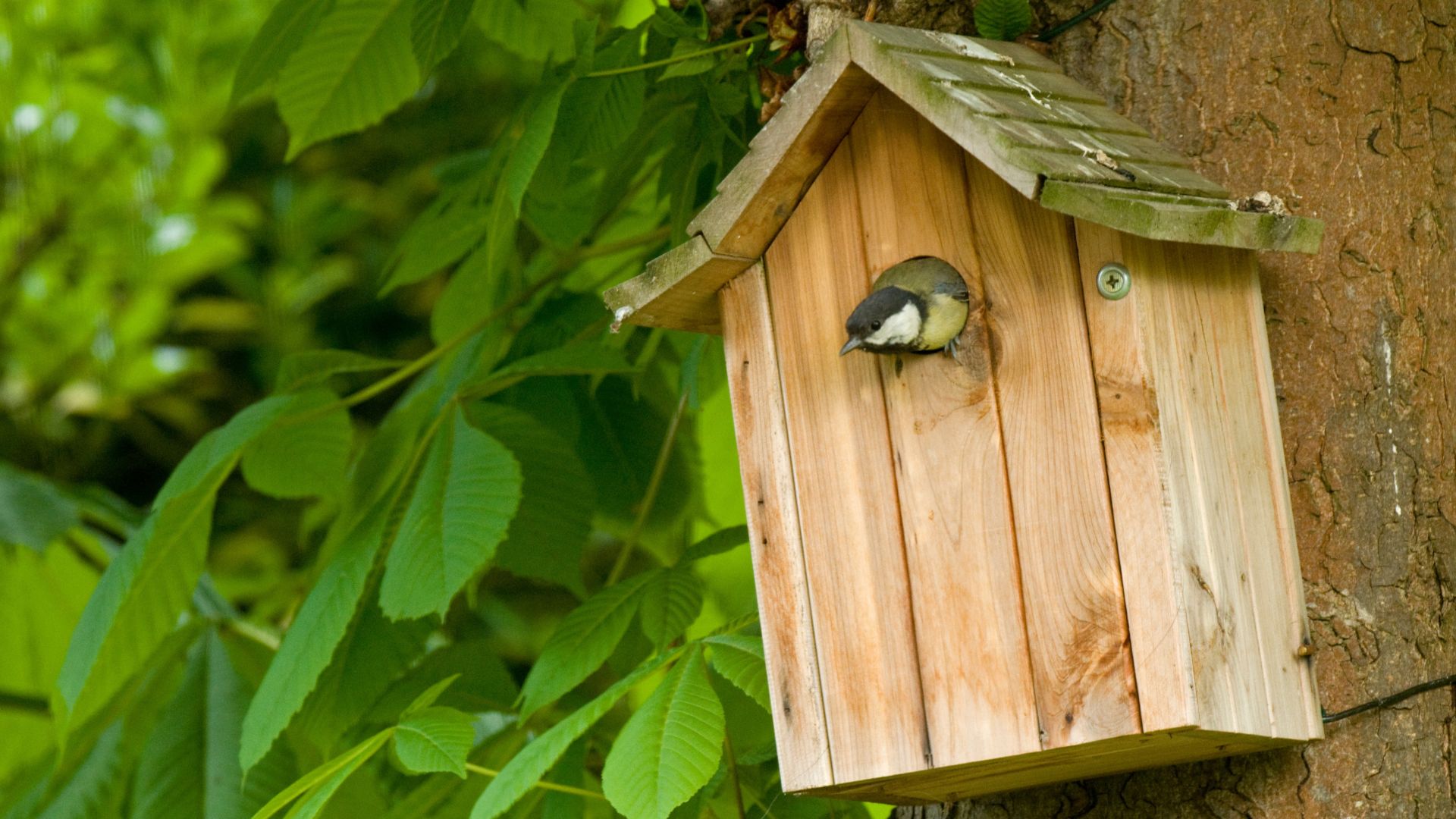
Many of the garden shade ideas you can use in your garden can double up as a shelter for birds. Whilst that might not be the main goal, providing shelter for birds will encourage them to come and help you with your slug problem.
Maria says, "Finally, create sheltered areas for birds to hide from predators. Shrubs, trees, and hedges provide safe places for refuge and nesting."
Supa Wild Bird Multi-Purpose Nesting Box: £12.98 at Amazon
The front panel of this nesting box from Supa at Amazon can be removed to create an open design, meaning it can be used in two ways.
5. Go Chemical-free
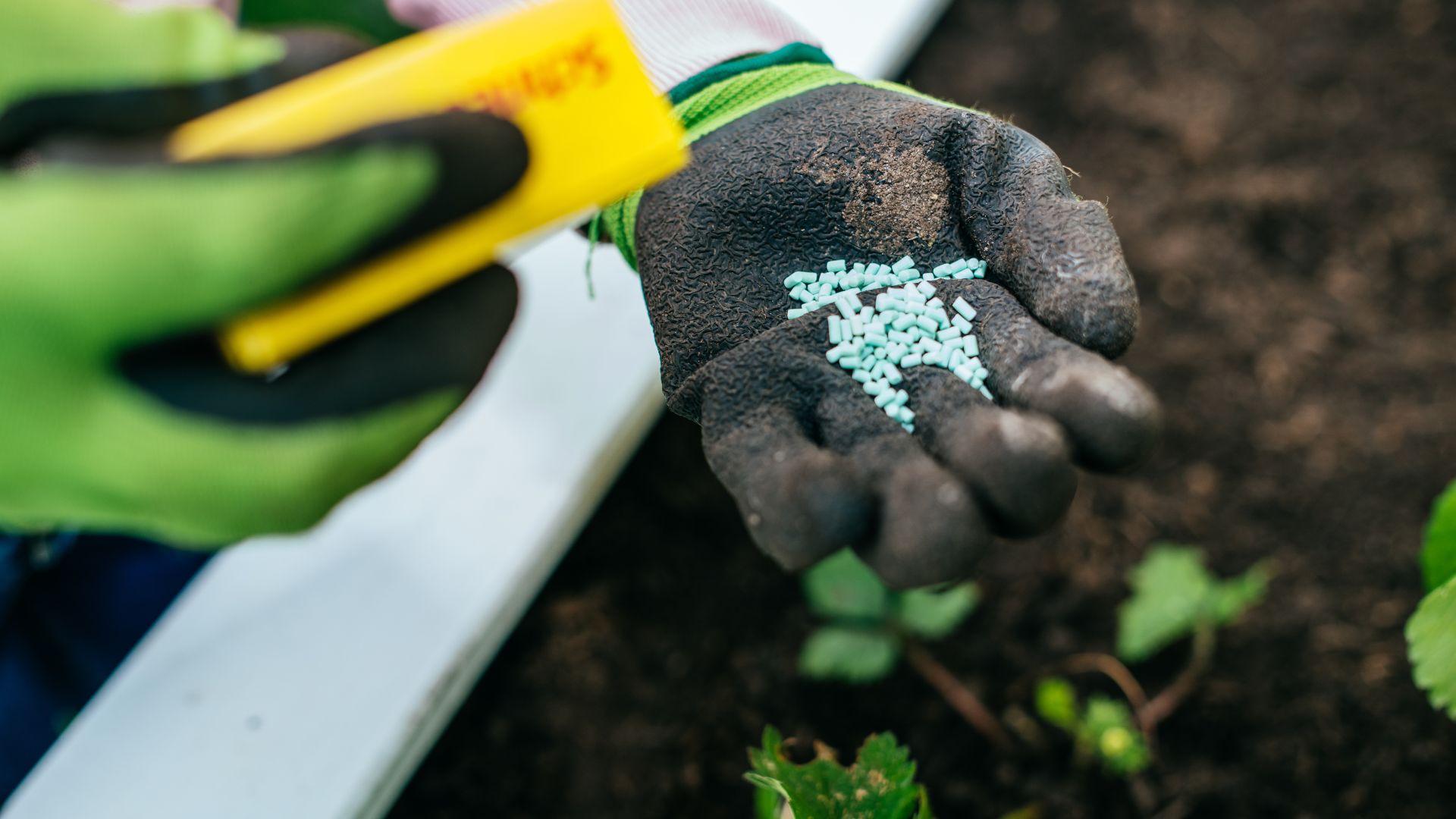
Pesticides may have been your current solution, but they can cause way more harm than good to your garden. If you're participating in the rewilding trend you'll definitely want to stop any use of chemical pesticides and pellets as they can even stop the birds from visiting.
Maria Kincaid, the head ornithologist at FeatherSnap, says, "While it may be tempting to use pesticides such as pellets and sprays to keep the slugs at bay, chemical pesticides can be harmful to birds and reduce their food sources. Metaldehyde, a molluscicide ingredient found in many slug pellets, was banned in 2020 due to its 'unacceptable' risk to birds and mammals."
There are more sustainable garden ideas you can use to stop unwanted pests, such as Hortiwool and using eggshells in your garden.
How beneficial are birds in helping get rid of snails and slugs?
Looking to the birds in your garden might not have been your first idea when it comes to your pest control issues but there's no denying how effective it can be.
"Birds are extremely helpful when it comes to controlling the slug and snail population in your garden, as they’re one of their most prolific predators," explains James. "Not only are they good at what they do, but they’re an entirely natural form of pest control that is a normal part of your garden’s ecosystem - meaning you don’t have to worry about using things like slug pellets, that may cause your garden unintended harm."
It's no use harming the alluring plants that liven up your garden in hopes of removing slugs and snails when birds can efficiently do the job, all naturally.
James is also quick to point out how helpful birds are for spreading pollen and seeds around your garden, whilst their dropping act as a great fertiliser for plants. So whether you're vegetable gardening for beginners or are growing some impressive pollinator plants, you'll want a flock of birds on your side.

Emily joined woman&home as a staff writer after finishing her MA in Magazine Journalism from City University in 2023. After writing various health and news content, she now specialises in lifestyle, covering unique cleaning hacks, gardening how-tos, and everything to help your houseplants thrive.
